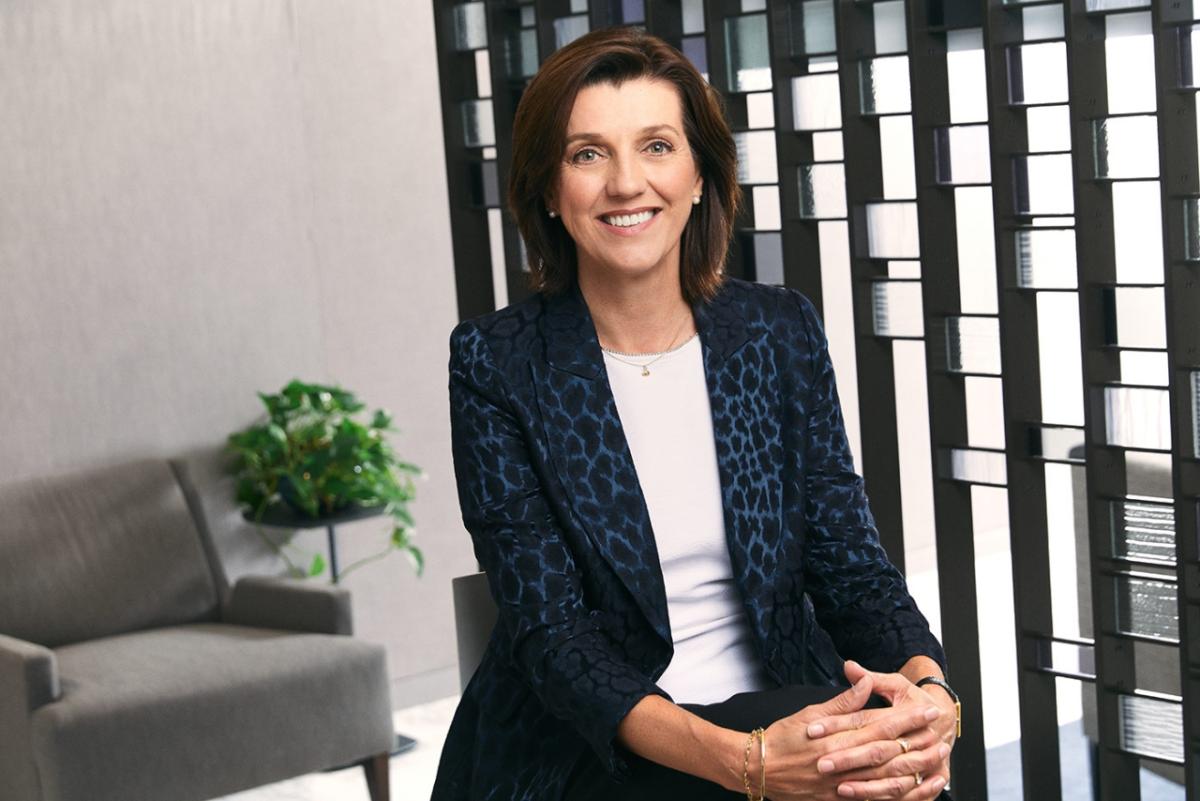From Patient to Physician: Trading Places
By Estelle Vester-Blokland, MD, Senior Vice President, Global Medical Affairs

Originally published on Bristol Myers Squibb News & Perspectives
At Bristol Myers Squibb, Global Patient Week stands as a pinnacle of our year-round vision to transform patients’ lives through science, bringing together our more than 32,000 employees around the world to celebrate the individuals we work each day to serve. This year, in collaboration with the patient advocacy groups we partner with, we asked a few of our Leadership Team members to share their perspectives on how the work their teams are leading impacts lives around the world.
Medical knowledge keeps accelerating exponentially, according to a widely cited study from the National Institutes of Health. In 1950, medical knowledge was estimated to double every 50 years. But by 1980 it doubled every seven years, and by 2010, every 3.5 years. By 2020 the collective universe of medical knowledge – all the available information accumulated across time about diseases and therapies; in short, everything we know about our patients – was projected to double every 73 days.
Yes, every 73 days.
Yet in contrast, every new medical discovery requires a change in mindset and behavior within the healthcare delivery system that often takes a long time to make an impact. Some research explored just how long. It found that scientific innovations, whether for diagnosis or treatment, are adopted in clinical practice only after an average of 17 years.
How, then, can we address this gap – to harness our growing scientific knowledge to appropriately speed up the delivery of life saving medicines to the patients that need them?
I face this question every day and relish the challenge. As Senior Vice President of Global Medical Affairs at Bristol Myers Squibb, it’s my job to translate science into clinical practice, and as a physician, I’m no stranger to advocating for patients.
In my role, I oversee 2,000 employees worldwide that perform pivotal functions in educating and fostering understanding among the company’s internal and external stakeholders. Toward this end, we share the latest science generated by our company and instill the key insights into everyday medical practice. The ultimate purpose is to demonstrate the value of our medicines, and ensure they’re used safely and effectively to meet patient needs.
Making life better for patients
Still, we face more than a few hurdles in reaching desired outcomes for all patients. Some patients have chronic illnesses, such as heart disease or diabetes, that are undiagnosed, which means they are likely going untreated. Additionally, physicians, nurses and other healthcare professionals may lack sufficient awareness of the most current diagnostic guidelines and newly approved medicines. These can be barriers to delivering patient care, and it’s our job to identify these roadblocks and work to remove them as quickly as possible. If we’ve learned anything over the years, it’s that we can always find new opportunities to make an impact for patients.
That’s why we’ve created what we call our “Impact Agenda” in Global Medical at Bristol Myers Squibb to continuously focus our priorities and guide our executions. Our North Star is to ask ourselves the simplest of questions. How will a given project or process ultimately make life better for our patients? That’s the question that motivates us to break through the barriers we inevitably encounter.
Here’s a case in point. BMS is passionate about helping heart patients with hypertrophic cardiomyopathy (HCM). It’s estimated that between 1 in 200 and 1 in 500 people have HCM, but about 85% of those patients may remain undiagnosed. With these insights in mind, in the U.S. we launched a patient education campaign to raise awareness of the disease’s signs and symptoms. The initiative, called "Could It Be HCM?,” urges patients who may be experiencing symptoms to start a conversation with their doctor about potentially seeing a cardiologist.
In addition, we’re reaching out to doctors in the U.S., too. ExposeHCM, a disease education website, delivers information to promote better understanding, diagnosis and management of the disease.
In every case it’s about putting patients first.
Passion driven by personal experience
Why am I so passionate about making patients a No. 1 priority? In part, it’s because at an early age I had an experience as a patient myself that made a big impression on me. I was diagnosed with a chronic kidney disease at age five and suffered infections that required me to be hospitalized and undergo surgery.
Going into surgery was scary. I was young, with no idea what was going on or why I was there. I remember it to this day, all the machines around me, how I had to wear a gown and hairnet, at that time my parents not able to stay overnight at the hospital to make me feel less anxious.
But through all those many visits to the hospital, I had a wonderful pediatrician. She explained everything going on so I could understand. She literally held my hand. And thanks to her, I felt safer, more comfortable and less afraid.
I trusted her, and she inspired me. She’s one of the reasons I decided around age 17 to go to medical school and become a doctor.
So that’s been my personal journey – from patient, to physician and beyond. In the same way I trusted my pediatrician as a child, I now seek to earn the trust of our patients every day. And just as she educated me about my illness and treatment – by translating complex science into her clinical treatment to ease my youthful anxieties – so do we at Bristol Myers Squibb Global Medical make it our mission to educate patients, physicians and our community of healthcare providers.
It's more than a privilege. You might even call it a destiny fulfilled.

